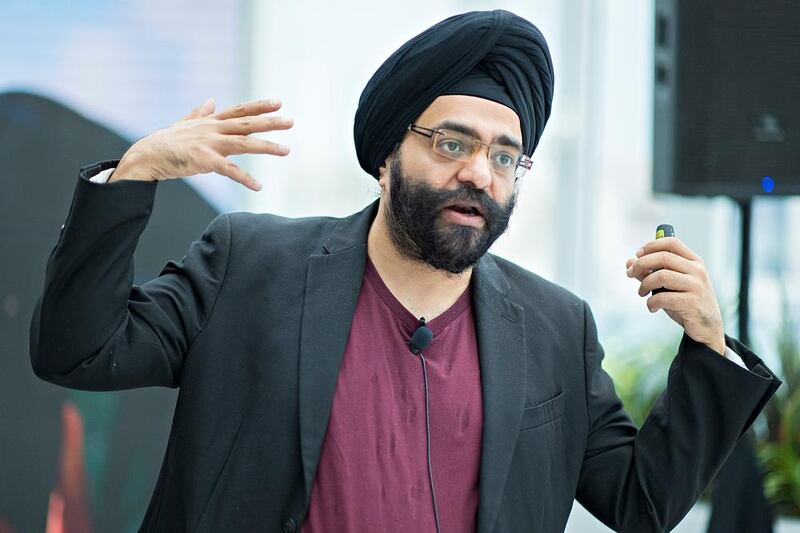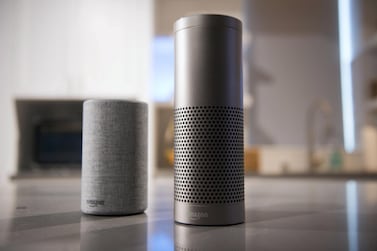Finnish smartphone brand Nokia is aiming to revive its old magic in the Middle East and North Africa – known for its appetite for high-end smartphones – by targeting the budget-conscious customers.
The company, which sold its first smartphone in the second half of 2017 after a hiatus of nearly four years, plans to increase its market share by offering affordable phones and regular software and security updates to consumers, said Sanmeet Kochhar, general manager of HMD Global Middle East and acting vice-president for the wider Mena region.
HMD is the sole seller of Nokia phones globally. It has a direct presence in 80 countries but sells Nokia handsets in more than 180 countries.
"We are responsible for the next chapter of Nokia smartphones … with zero market share in 2016, currently we are number one in the units' sales of smartphone and feature phone together in the Middle East," Mr Kochhar told The National.
Nokia is among the top five brands in terms of smartphone sales, Mr Kochhar said, citing numbers from the International Data Corporation. But it is the largest seller of feature phones – handsets that allow basic services such as WhatsApp messaging but lack the advanced functionalities of a smartphone.
“Our feature phones are the first choice of consumers, who want to digitally detoxify during weekends or keep an emergency phone for calls and text, with more than 25-day battery life,” said Mr Kochhar.
Headquartered in Espoo, Finland HMD has a 10-year exclusive licence from Nokia to run its smartphone business. HMD is responsible for design, research and development, manufacturing, selling and after sales services of Nokia devices.
The company shipped nearly 4.8 million Nokia smartphones globally in the second quarter to June, an annual growth rate of almost 20 per cent, according to research company Counterpoint in Hong Kong.
“We have strong partnerships with companies like Google, Foxconn and Qualcomm, therefore bringing the best Android and hardware experience to consumers,” said Mr Kochhar.
Nokia sold its smartphone business to Microsoft in 2013, after which the American company was making phones under the brand name of Lumia. However, Nokia bought back the business in 2016, before handing the management to HMD.
The company managed to offer the latest Android Pie operating system – launched in August last year – to most of its users. Almost 96 per cent of Nokia smartphones sold since the third quarter of 2018 are running on Pie, according to Counterpoint.
“Every month, we release a new security update for all our devices, irrespective of price and make. Hardware quickly becomes obsolete, so we believe software will play the real differentiator for consumers,” said Mr Kochhar.
Founded in 2016, HMD’s revenue grew 28 per cent to $2.8 billion (Dh10.3bn) with a total equity investment of $115 million last year. It closed a Series A funding round in 2018, raising $100m, and is now raising a larger Series B round.
“We have chalked out clear investment areas to drive the future of Nokia phones, including affordable 5G phones, software security management and innovations in the feature phone segment,” said Mr Kochhar.
HMD has outsourced the manufacturing of Nokia phones to third parties with facilities in Argentina, Indonesia, Vietnam, China and India.
While many competitors have pre-built apps on phones, which eats into its memory, Nokia devices are delivered with "pure basic Android with no pre-installed apps", said Mr Kochhar.
“Many of our consumers are [the] youth, who may have not used Nokia phones ever. So we are very cautious about their expectations, we don’t want to tell them what they should do with their phones," he said.








